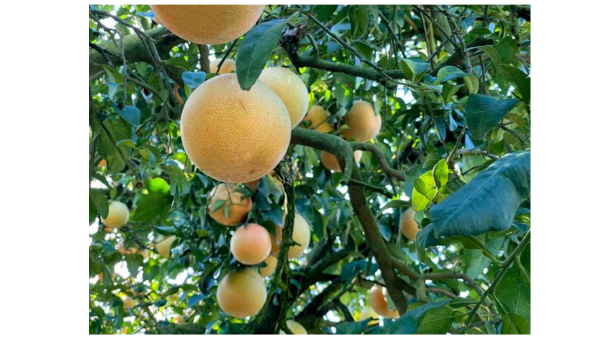This is a guest column submitted by Enrique Gracia, president of Flavor King Farms BB #:288277 and chair of the Citrus Importers Coalition, which is affiliated with the Fresh Produce Association of the Americas BB #:144354.
There they go again.
Florida produce growers have for many years exerted extraordinary influence to erect disruptive protectionist barriers against imported fruits and vegetables – particularly tomatoes, cucumbers, squash, bell peppers, blueberries and strawberries grown in Mexico. Most recently, they requested that the U.S. government initiate a Section 301 investigation on all produce from Mexico, though that petition was denied for lack of evidence.
Once again, with the help of arcane technicalities and the muscle of their states’ Congressional delegations, grapefruit growers from the southern United States – especially from Florida – have succeeded in nearly shutting down the importation of grapefruit from Mexico.
To accomplish this, the growers have leaned heavily on their Florida’s “juice standard,” which desert-grown grapefruit like those from Mexico cannot meet because of their characteristically thicker rind. There is no national juice content standard and no clarity about whether the Florida juice requirement is applicable to the entire U.S. market.
That’s why the USDA has for years declined to enforce the Florida juice content requirements on grapefruit produced outside of Florida – not only because it is a poor measure of a fruit’s overall quality but also because doing so would in turn disqualify desert-grown grapefruit from California and Arizona.
Yet, in spite of the legal ambiguity, the southern grapefruit growers have gotten what they wanted. As of October 1, USDA has begun to apply the Florida juice standard, which will bar nearly all Mexican grapefruit from the U.S. market through March 31, 2023.
That is, of course, the very height of the time when Mexican grapefruit imports make up for the seasonal dip in U.S. production. The supply pain will be even more pronounced this year because, even before Hurricane Ian battered citrus groves in Florida, production there has for much of this year been down by as much as 40 percent compared to 2021, according to the National Agricultural Statistics Service.
The southern grapefruit growers are trying to obscure the fact that Mexican grapefruit, which has come into the U.S. market over the last decade, is just as sweet, ripe, and juicy as customers have come to expect. That’s why rigorous USDA-licensed inspections of every Mexican grapefruit have for the last decade allowed them to enter the U.S. market. Those inspections reveal that Mexican grapefruit not only meet U.S. quality standards but, in many instances, exceed them. And it’s why they also more than live up to the ultimate test: demand for high quality from U.S. distributors, retailers, and consumers.
The only winners in this situation will be the Florida growers themselves, who believe they are protecting their fortunes by vanquishing a perceived competitor from the market. American consumers, on the other hand, will be far less fortunate. They will face lower supplies of and higher prices for grapefruit at their local groceries – at a time, no less, when inflation has shrunken their buying power.
And there’s concern in the industry that if they stop buying grapefruit now, fewer American consumers will come back to it when the market has settled, and prices are better.
Likewise, companies like mine, which are responsible for bringing these other fruits to markets across the U.S., will face significantly lower revenues, which makes our Americans workers vulnerable.
We are hurt not just by the stoppage itself, but by the last-minute nature of the decision to block grapefruit – in violation, by the way, of long-standing U.S. law that requires much longer notice. When we learned of this decision only a few weeks ago, my company and others like ours had already consummated contracts with most of our customers in the U.S. (We usually finalize that process in early August.) Now we will we be unable to make good on those contracts and struggle to find a market for the large volume of grapefruit now being harvested in Mexico.
What’s more, America’s trade relationship with Mexico, already strained by many years of reckless protectionism against Mexican produce, will continue to deteriorate, leaving us exposed to possible retaliation against any number of other U.S.-grown produce and commodities.
The best course of action right now is to delay the new decision to block Mexican grapefruit importation until the entire industry can come together to decide on juice requirements as part of a larger quality standard. All industry partners and consumers deserve a seat at the policy making table, which has been dominated by the Florida growers.
We also need to set the facts straight, once and for all, that their steady barrage of protectionist assaults will erode U.S. produce markets, hurting everyone who relies on them for their nourishment and their livelihoods – including the southern grapefruit growers themselves.



